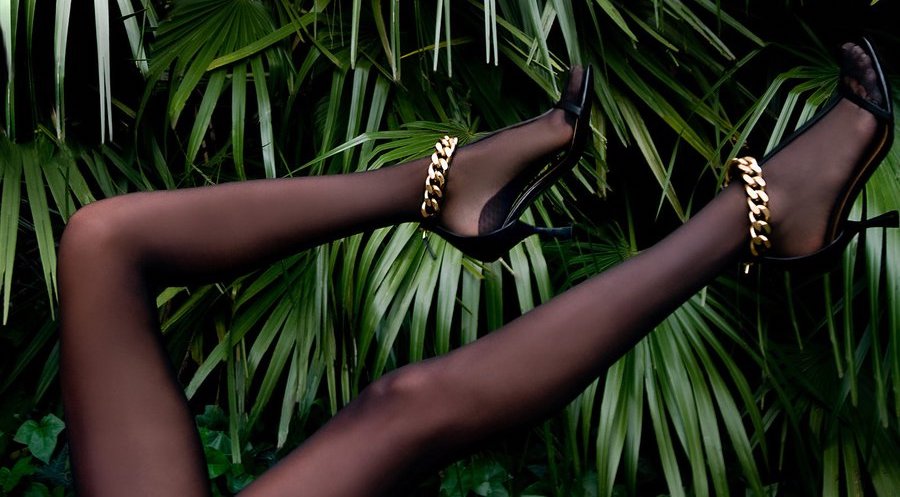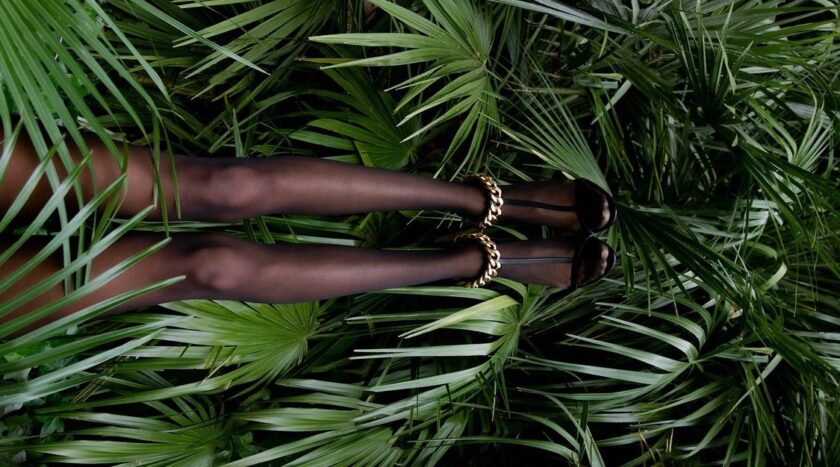British fashion label Hēdoïne wants to reduce the volume of tights ending up in landfill, launching the world’s first biodegradable tights collection.
And the company is on the brink of launching a recycling program for any tights – not just its own, but those made by any other brand as well – working on a plan to convert them into insulation or tyre components.
The Biodegradable range, as it is called, is on sale for £30 a pair during a 12-week pop-up store at Selfridges which launches Monday (September 20), and on its website.
According to Fashion UK, most tights worn in Europe don’t survive beyond a single wear, which means “billions” end up in landfills every year. So to reach its sustainability goals, with The Biodegradable, Hēdoïne is focusing firstly on ensuring longevity – so the tights are worn many times – followed by ensuring recyclability and biodegradability.
Acknowledging that to date no one has managed to invent fully biodegradable yarn, Hēdoïne discloses that the material it uses saves 85 per cent of the material that would otherwise end up in landfills.
Hēdoïne says that when the owner has finished with their tights, they can be disposed of as normal waste to be composted via an anaerobic waste management facility – as most general waste is broken down throughout Europe. However, Hēdoïne’s customers will also be provided with an option to send their pre-loved tights back to the company to undergo biodegradation, should their home country not support such waste management technology.
According to Hēdoïne’s founders Alexandra Tymann and Anna Rauch The Biodegradable 30 denier sheer black tights merge the brand’s ladder-resistant technology with a biodegradable yarn. More varieties will be progressively added to the range.

“To significantly reduce the volume of tights that end up in landfill, we started by making ours ladder-resistant and longer-lasting, creating a durable product that lasts much longer than the average,” the founders explain.
“Then we wanted to minimise wastage across the entire industry which meant tackling recycling. Our soon-to-launch recycling project not only allows our customers to recycle their pre-loved Hēdoïne tights, but also enables them to recycle tights or leggings from absolutely any brand.
“Ultimately, we want to close the loop – which is where biodegradable tights came to be key. Tights should feel good and do good – the future is biodegradable.”
Furthering the sustainability commitment, the tights are produced “mindfully” in Italy under Oeko-Tex certified conditions, using recycled water and without harmful chemicals.
While in their own words Tymann and Rauch “generally encourage misbehaving,” this is “one of the places we don’t”.
“Whether it’s reducing water usage, standing against throwaway culture, or using recyclable materials – this is how we’re changing the way tights are crafted. Our products are 100 per cent vegan – our processes don’t cause harm to humans or animals.”
And the company is definitively against the prevailing throwaway culture – its long-term vision is for all of its pantyhose to be fully biodegradable when technology allows.
- Read about more biodegradable and sustainable fashion products being developed around the world here.



